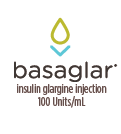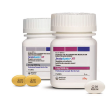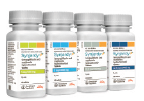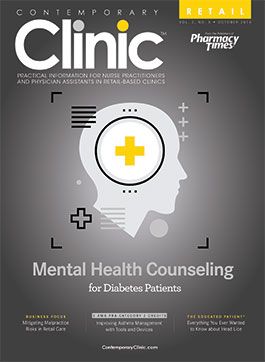Rx Product Updates (October 2016)
Read about the new Rx products featured in October 2016.

Marketed by: Eli Lilly and Company
Indication: The FDA has approved Basaglar (insulin glargine injection), a long-acting human insulin analog, for improving glycemic control in adults and pediatric patients with type 1 diabetes mellitus, and in adults with type 2 diabetes mellitus. The dosage should be individualized based on metabolic needs, blood glucose monitoring, glycemic control, type of diabetes, and prior insulin use. Basaglar should be administered subcutaneously once daily at any time of day, but at the same time every day.
Dosage Form: Injection: 100 units/ mL (U-100) in 3-mL prefilled Basaglar KwikPen delivery device
For More Information: basaglar.com

Jentadueto
Marketed by:Boehringer Ingelheim Pharmaceuticals, Inc
Indication:The FDA has approved Jentadueto, a dipeptidyl peptidase-4 (DPP-4) inhibitor and biguanide combination product, as an adjunct to diet and exercise to improve glycemic control in adults with type 2 diabetes mellitus when treatment with both linagliptin and metformin is appropriate. The starting dose of Jentadueto should be individualized based on the patient’s current regimen. The maximum recommended dose is 2.5 mg linagliptin/1000 mg metformin twice daily.
Dosage Form:Tablets (linagliptin/metformin hydrochloride): 2.5/500, 2.5/850, and 2.5/1000 mg
For More Information:hcp.jentadueto.com

Synjardy
Marketed by: Boehringer Ingelheim Pharmaceuticals, Inc
Indication: Synjardy (empagliflozin and metformin hydrochloride) is approved as an adjunct to diet and exercise to improve glycemic control in adults with type 2 diabetes who are not adequately controlled on a regimen containing empagliflozin or metformin, or in patients already being treated with both empagliflozin and metformin. The starting dose should be individualized based on the patient’s current regimen. The maximum recommended dose is 12.5 mg empagliflozin/1000 mg metformin twice daily.
Dosage Form: Tablets: 5 mg/500 mg, 5 mg/1000 mg, and 12.5 mg/500 mg, and 12.5 mg/1000 mg
For More Information: boehringer-ingelheim.com

Knock Out Aches and Pains From Cold
October 30th 2019The symptoms associated with colds, most commonly congestion, coughing, sneezing, and sore throats, are the body's response when a virus exerts its effects on the immune system. Cold symptoms peak at about 1 to 2 days and last 7 to 10 days but can last up to 3 weeks.
COPD: Should a Clinician Treat or Refer?
October 27th 2019The Global Initiative for Chronic Obstructive Lung Disease (GOLD) defines the condition as follows: “COPD is a common, preventable, and treatable disease that is characterized by persistent respiratory symptoms and airflow limitation that is due to airway and/or alveolar abnormalities usually caused by significant exposure to noxious particles or gases.â€
Diabetic Ketoacidosis Is Preventable With Proper Treatment
October 24th 2019Cancer, diabetes, and heart disease account for a large portion of the $3.3 trillion annual US health care expenditures. In fact, 90% of these expenditures are due to chronic conditions. About 23 million people in the United States have diabetes, 7 million have undiagnosed diabetes, and 83 million have prediabetes.
What Are the Latest Influenza Vaccine Recommendations?
October 21st 2019Clinicians should recommend routine yearly influenza vaccinations for everyone 6 months or older who has no contraindications for the 2019-2020 influenza season starting at the end of October, according to the Advisory Committee on Immunization Practices.
What Is the Best Way to Treat Pharyngitis?
October 18th 2019There are many different causes of throat discomfort, but patients commonly associate a sore throat with an infection and may think that they need antibiotics. This unfortunately leads to unnecessary antibiotic prescribing when clinicians do not apply evidence-based practice.
